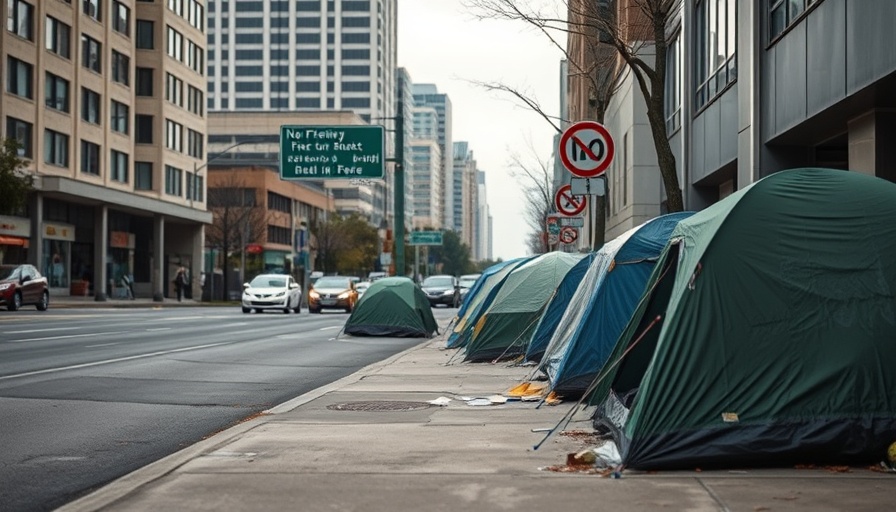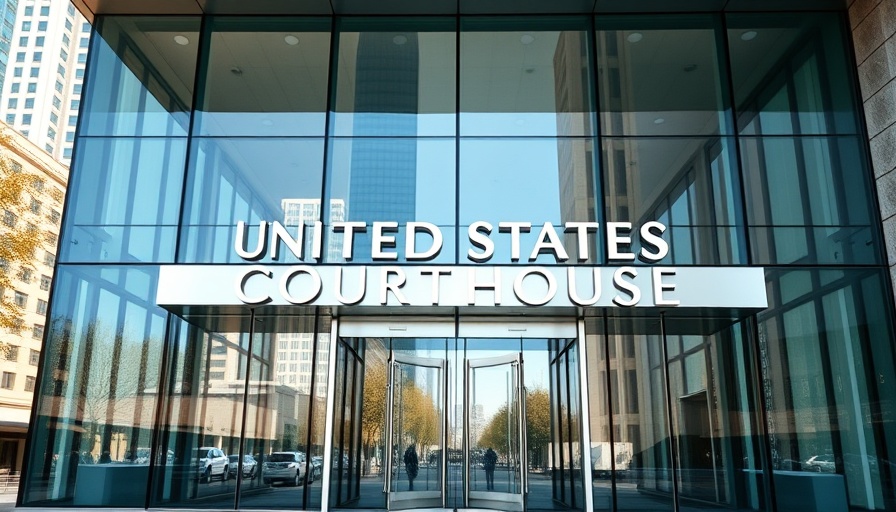
The Threat of Homelessness: Understanding the HUD Decision
The alarm bells have been ringing in San Francisco as the Trump administration’s most recent actions raise concerns over the city’s already dire homelessness crisis. With funding from the Department of Housing and Urban Development (HUD) potentially on the chopping block, advocates for low-income families predict that an estimated 15,000 residents may soon face homelessness. This escalation arises from HUD Secretary Scott Turner’s announcement, which threatens to revoke financial assistance for those living in sanctuary cities, where local laws prevent collaboration with federal immigration enforcement.
What Does the Loss of HUD Funding Mean?
Since its establishment in 1989, San Francisco's sanctuary city policy has been a lifeline for numerous vulnerable populations, including those who are undocumented. Laura Chiera, Executive Director of Legal Assistance to the Elderly, emphatically warns about the dire ramifications: “They’ll all be homeless, there’s no question.” This statement reflects not only the fear of losing housing but also the potential of an increased burden on local homeless services, which are already stretched thin.
City’s Sanctuary Policy Under Fire
The directive from Secretary Turner follows a pattern from the current administration aimed at dismantling immigrant protections, as evidenced by the executive order titled “Ending Taxpayer Subsidization of Open Borders.” With HUD indicating its intent to monitor public housing and deport non-permanent residents, fear and uncertainty have gripped many families reliant on housing assistance.
Families at Risk: A Look Behind the Numbers
Half of the families in San Francisco’s homeless response system are newcomers, according to Hope Kamer, Director of Compass Family Services. These families often rely on federal housing assistance to secure stable homes, but the fear of deportation if they seek help presents a conflicting dilemma. Among those affected are families with children who have disabilities, creating a compounded vulnerability within the community.
The Wider Implications of Housing Instability
Housing advocates emphasize that the termination of federal aid will not only displace families but will also inhibit their ability to escape the cycle of poverty and homelessness. Many individuals rely on Federal Housing Assistance (FHA) programs to subsidize rent, now threatened by potential policy changes. The implications of these changes reach further than the immediate loss of housing; they risk destabilizing communities already struggling to provide safety and support for their residents.
Voices in the Community: Personal Stories
“I’m thinking of one family; they had small kids and children with disabilities. They’ve exhausted every means to stay housed,” Chiera noted. These stories highlight how the administrative policies can obscure the human experience, creating a world stigmatized by fear.
Alternatives and Future Outlook
As San Francisco navigates this crisis, community organizations are left to pick up the pieces. Many advocates argue for increased local funding to support housing initiatives. Public discourse about the implications of cutting federal support needs to elevate issues of affordability, community health, and individual safety.
Conclusion: Taking Action for Change
As we witness these potential shifts, it’s vital that residents and stakeholders engage with their local government to advocate for policies that ensure the protection and support of the vulnerable populations. Community discussions aimed at addressing these changes are imperative, as they create a platform to voice concerns and ideas for sustainable solutions.
If you're invested in the future of your community, start conversations today. Advocate for change, challenge negative policies, and ensure that all families in San Francisco, regardless of their immigration status, have access to the resources they need. Every voice matters in creating a resilient community.
 Add Row
Add Row  Add
Add 




 Add Row
Add Row  Add
Add 

Write A Comment